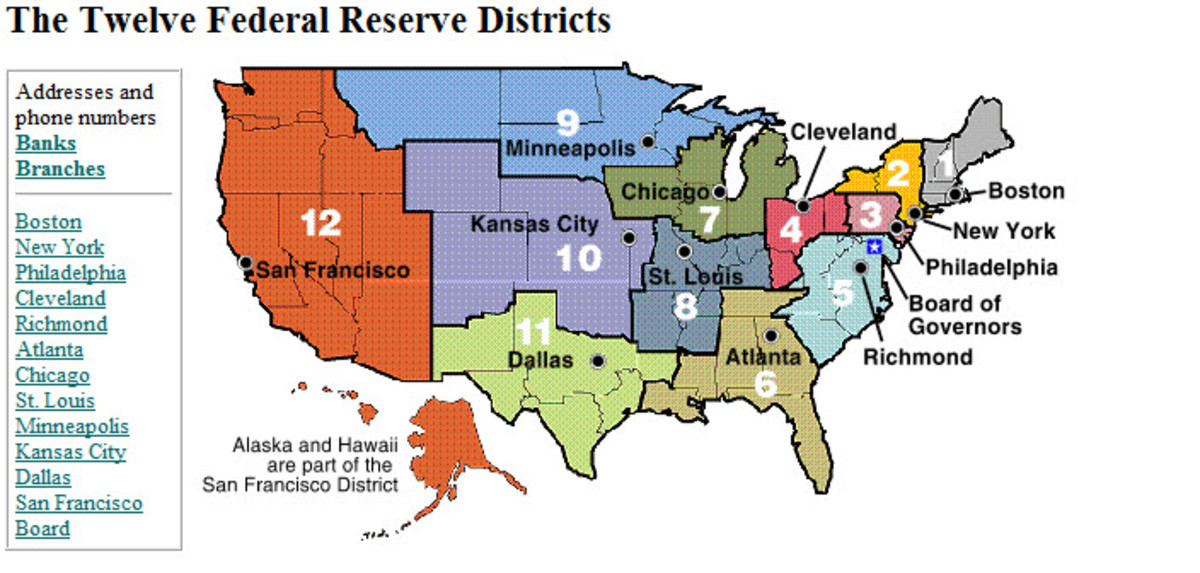QE3 and Mortgage-Backed Securities - Bernanke's Latest Folly

Quantitative Easing, Round 3
The news today is that the Fed will go forward with QE3. Their brilliant plan? Buying up $40 billion of mortgage-backed securities per month. They think this will somehow stimulate the real estate market, and even address unemployment, which is puzzling to me. The only thing the government is going to improve by buying up MBS's is the MBS market, and it was a hot MBS market that led to the housing collapse in the first place.
Some Background on Mortgage-Backed Securities
Simply put, mortgage-backed securities (MBS's) are financial instruments made up of bundles of home mortgages, which give the owners of those instruments the right to the cash they generate (your mortgage payments).
While mortgages have always been transferable, generally banks (and other lending institutions) used to loan you money for your house, then hold onto the mortgage and profit from the interest on your timely mortgage payments. As holders of your mortgage, they also took the risk of you defaulting, so before they loaned you that money, they checked you and your property out pretty well. It was a good system. Sometimes, you even had enough of a relationship with your bank that you could talk with somebody face-to-face if you had a problem.
Now, most mortgages are sold - immediately - for an instant profit. Mortgage brokers have a distinct set of metrics, laid out by whatever bank is buying the mortgage, that they need to meet in order to get a sale approved. For example, if a potential buyer applies for a mortgage at a brokerage, he/she must clear some hurdles: employed at the same job for x number of months; net income/debt ratio of y, minimum credit score of z , property appraised for a, etc... once all of the requirements have been checked off, the broker gets a promise from the bank, and buyer gets his mortgage. The broker immediately sells that mortgage to the bank, gets his money, and he is no longer on the hook. The bank now owns your mortgage.... for the moment, anyway.
If your mortgage is like most, the bank packages it into a bundled security (MBS), and that security is again sold. Now, that purchaser holds your mortgage. Could be another bank, could be an investor, or it could be a bank/investor from overseas. It doesn't matter too much - as long as you make your payments, everything is fine. (Usually, a third institution would collect your payments and pass them on.)
The Problem With a Hot MBS Market
Investors really liked MBS's. They gave great returns, plus they were backed by real estate. Investors like them so much that there was more demand for these MBS's than supply. And that's when things got sloppy (or fraudulent, take your pick). The demand for more MBS's was coming from investors, who aren't really interested in the details of what they are investing in. They look at rates of return and the investment ratings, then decide if that's a good investment or not, so they rely heavily on ratings companies like Moody's and Standard & Poor's to do the work for them. But those companies failed them - miserably. Somehow, MBS's made up of substandard loans were highly rated, which misled investors. (I'll leave it up to you to decide whether the ratings agencies were stupid or corrupt.)
In a hot market, when investors are clamoring for more MBS's, banks needed more mortgage loans to package up. So standards went down, corners were cut, and plenty of outright fraud was committed. One common category of fraud was bad property appraisals. Everything depends on an accurate appraisal of a property, since the mortgage loan is secured, ultimately, by the value of the property itself. If an appraisal is inflated, part of a mortgage loan is going to be completely unsecured (value of the mortgage - actual value of the property). Another common shortcut (or area of fraud) - fudging the numbers of/not fully vetting home purchasers. People who had no business getting loans were getting loans. It was an underregulated mess, but while home values were going up, few people noticed or cared.
Anyway, I'm not here to get into MBS's in painstaking detail. Suffice it to say that high demand from investors led to lowered standards (and fraud) in the mortgage business, which contributed to the ensuing high rate of default, which led to the housing collapse.
So why on Earth would Bernanke take steps to artificially re-heat the MBS market?
The Real Problem
People are still broke. Unemployment is still high, and those with jobs are feeling less secure about their employment. Who do they think is going to buy houses under those conditions? Rates are already incredibly low - if you can't afford a house today, you can't afford a house. The main difference between getting a mortgage now and getting one ten years ago is that now, banks again want 20% down. That is a legitimate hurdle, but it's also a safety feature for the holder of your mortgage.
The housing market isn't going to fully recover until people on the low end have money again. That is where the government should be putting its dollars - into the hands of the poor.
You would think Mr. Bernanke would know better by now that quantitative easing is a waste of time. After all, he's already tried, and failed, twice to stimulate the economy by pushing cash into the hands of banks. Has something fundamental changed in the interim that would make this work now?








